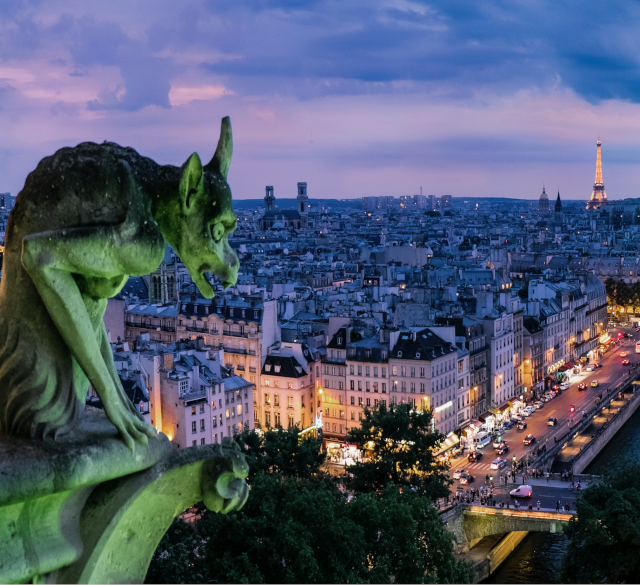by John Kiser
“I take the liveliest and most constant interest in France; I believe that to her destiny is joined the destiny of all Europe. You exercise an immense moral influence round about you and all the nations on the continent will follow your path. You have in your hand the power for good and ill in a higher degree than any people that has ever existed. I am unable to believe that we must despair of seeing France religious; I think that religion is a need so pressing for the heart of man that it is against the nature of things for a great people to remain irreligious.”
– William Ellery Channing to Alexis deTocqueville, October 2, 1831
Thanks to a Catholic priest, Fouad Chergui discovered Abdelkader. Thanks to Abdelkader, Fouad found a model for healing wounds and living an open universalist Islam. Thanks to Fouad, Elkader Iowa and the Abdelkader Education Project* are linked with France in mutual support. Our goal is to change behavior and thinking by reviving the example of a sorely needed, but forgotten world hero of the 19th century.
Fouad was born in Villeurbaine a suburb of Lyons. In 1975, this had become an Arab ghetto that resembled a prison with checkpoints for exiting and entering – a toxic microcosm of the war of independence that had ended officially in 1963. Assaults and shootings of Arabs (for sport, like rabbits, according to Fouad) by displaced angry pied noirs was commonplace.
His education after 5th grade took place in a government judicial institution for children considered unmanageable in the classroom where he learned the trade of electrician. Fouad credits a strict but respectful pied noir instructor with teaching him how to work seriously. After two years he became the first youth to successfully pass the course. But he never became an electrician. Unable to find a job, Fouad got involved in trafficking stolen cars, was sent to prison for two years and released early for good behavior. Again, he experienced France’s “polite” racism….“Sorry, the position has just been filled.” “The last room has been taken,” etc… His interior life was dominated by a vacillation between militant actions and social work helping young Arabs redirect their lives.
Fouad became involved with militant elements in the Arab communities and participated as a strategist in riots aimed at getting the government’s attention by damaging property without harming people. The most recent were the Paris riots of 2005 that spread around the country. Later, he decided that only serious long term social work with youth and with establishment support could avoid a worsening the situation in France.
After meeting Christian Delorme, a well known priest concerned with the same issues of integration of Arabs into French society, Fouad learned of emir Abdelkader. He began reading about emir’s ability to respond to violence and betrayal (including imprisonment) with positive actions and empathy. The emir’s example confirmed his own instincts. For the Arab youth, the emir is a role model that pays homage to Arab culture and builds pride in being a Muslim. For the non-Muslim population in France and in the United States, the emir offers a bridge to all people who can recognize the universality of the virtues he exhibited throughout his life and made him a hero from Missouri to Moscow to Mecca: prudence, moral courage, justice toward all, and self control.
Thanks to Fouad, I had the opportunity to see firsthand that my book Commander of the Faithful had a positive impact on French youth. I was impressed by his ability to reflect on his life and change it for the good, inspired by the example of Abdelkader.
* Commander of the Faithful: The Life and Times of Emir Abdelkader was launched in Elkader, Iowa in 2008
